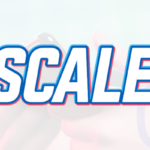Mobile gaming companies are facing tougher times than ever, with layoffs becoming a weekly occurrence. Adding to the challenge, the EU is tightening regulations on data collection and pushing to dismantle the duopoly of Apple and Google through the Digital Markets Act. This Act aims to classify large online platforms as “gatekeepers” and ensure fair competition and contestability.
The Digital Marketing Act establishes a set of clearly defined objective criteria to qualify a large online platform as a “gatekeeper” and ensures that they behave in a fair way online and leave room for contestability.
European Commission
A key aspect of “contestability” is the allowance for developers to offer alternative stores, potentially reducing the 30% commission that Apple and Google take on in-app purchases. While this sounds promising for financially strained gaming companies, it comes with its own set of complexities, which I’ll explore in this post.
First, there’s the significant investment required to build your own webstore. Although white-label platforms are available, they still take a considerable cut for the platform and payment processing. Developing your own webstore from scratch requires extensive resources, from product designers to engineers, and involves months of development and ongoing maintenance.
Even with a webstore in place, Apple and Google prohibit promoting it within your game in the US. In the EU, you can mention it but not directly link to it. Therefore, you need alternative channels of communication like social media, Discord, or newsletters. Large social-casino developers often have VIP teams to inform and guide their top spenders through the process.
The webstore must offer unique benefits over the regular App Store to attract users. For instance, Socialpoint provides a Web-only VIP Egg for their Dragon City game, and Supercell offers more ‘Gems’ in their webstore for the same price as the App Store.
However, players may remain skeptical about using an alternative webstore. Issues like unavailable currencies, technical problems, and fear of scams are common. Currently, most mobile players are not used to making purchases outside of the App Store, though this may change as more developers adopt alternative stores.
Shifting in-app purchases from mobile to web also affects App Store rankings, which impacts the visibility and discoverability of your game. If the average revenue per user decreases due to direct-to-consumer purchases, it’s likely that App Stores will deprioritize your game. Eventually, the barriers to alternative payments will diminish, and mass adoption will follow. But for now, having an alternative store makes sense primarily for big players with a significant user base or a strong community that can be easily reached
First, there’s the significant investment required to build your own webstore. Although white-label platforms are available, they still take a considerable cut for the platform and payment processing. Developing your own webstore from scratch requires extensive resources, from product designers to engineers, and involves months of development and ongoing maintenance.
Even with a webstore in place, Apple and Google prohibit promoting it within your game in the US. In the EU, you can mention it but not directly link to it. Therefore, you need alternative channels of communication like social media, Discord, or newsletters. Large social-casino developers often have VIP teams to inform and guide their top spenders through the process.
The webstore must offer unique benefits over the regular App Store to attract users. For instance, Socialpoint provides a Web-only VIP Egg for their Dragon City game, and Supercell offers more ‘Gems’ in their webstore for the same price as the App Store.

However, players may remain skeptical about using an alternative webstore. Issues like unavailable currencies, technical problems, and fear of scams are common. Currently, most mobile players are not used to making purchases outside of the App Store, though this may change as more developers adopt alternative stores.
Shifting in-app purchases from mobile to web also affects App Store rankings, which impacts the visibility and discoverability of your game. If the average revenue per user decreases due to direct-to-consumer purchases, it’s likely that App Stores will deprioritize your game. Eventually, the barriers to alternative payments will diminish, and mass adoption will follow. But for now, having an alternative store makes sense primarily for big players with a significant user base or a strong community that can be easily reached



